Generators, those versatile contrivances, serve as a beacon of electricity for everything from minuscule gadgets to more robust domestic machines in urgent scenarios. Their forms and capacities vary, with some possessing the robustness to energize an entire domicile during crises.
Such whole-domicile generators emerge as saviors, providing an alternative electric source amidst the failure of the primary grid, ensuring the uninterrupted operation of crucial home appliances.
This boon is particularly pronounced in rural expanses, where transient power failures and natural calamities often lead to extended electricity deprivation. But ponder the scenario within a multi-family residential structure – is generator utilization feasible here?
In brevity, the utilization of a solar generator within an apartment setting is feasible, provided it operates silently, emits no pollutants, and maintains harmony among residents.
For those residing in apartments and seeking a dependable auxiliary power source, solar-powered portable generators present an ideal solution. These compact, often resembling a suitcase, apparatuses are lauded for their efficiency, noiseless operation, and suitability for apartment use.
Do Apartments Have Backup Generators and Should I Buy One?

In the realm of modern domiciles, a plethora of edifices integrate ancillary power mechanisms. These robust and stationary constructs are ingeniously engineered to engage independently, channeling electrical current to vital services such as ascension and illumination during electrical grid failures. Typically, these installations do not extend their energy provision to individual habitation cells within the complex.
Consequently, the inclination towards procuring personal electrical generation devices for inhabitants of collective housing structures is experiencing a marked ascendancy. It is imperative, however, to discern the permissible varieties of power generators in these communal environments.
Historically, generators propelled by petrol were the go-to for emergency energy requisites. Yet, in the compact milieu of apartment living, these machines are less than ideal owing to their tendency for sonorous disturbances, emissions, and the risks accompanying improper installation and operation.
For those questing for a tranquil, secure, and eco-conscious power alternative, solar generators stand as the epitome of choice. These apparatuses capture solar effulgence, storing energy in photovoltaic cells. They operate devoid of emissions and malodorous fumes, and their function is marked by negligible aural intrusion, thus averting disputes with proximate residents or estate stewards.
Prominent among selections for apartment inhabitants are the OUPES 1800 Portable Power Station, the OUPES 2400 Portable Power Station, and the OUPES Mega 3 Home Backup & Portable Power Station. Each is celebrated for its superlative efficiency and dependability.
These wholly electric, transportable generators are lauded for their featherweight nature and straightforward operation, presenting an optimal choice for residents in constrained spaces. Capable of empowering a broad spectrum of gadgets, from mobile communicators to portable computing devices and domestic apparatuses, they act as a reliable ally amidst power cessations.
What Kind Of Generator Can I Use In An Apartment?

In the realm of residential dwellings, one might ponder the selection between a gasoline-powered generator and its battery-operated counterpart. Each choice offers a myriad of distinct considerations.
Gasoline-fueled generators, notwithstanding their capacity for heightened durability and often requiring a lesser initial investment, have garnered notoriety due to their raucous operation and the emission of perilous carbon monoxide, thereby posing a significant peril to both the occupant and the immediate surroundings.
The alternative, and indeed the more judicious preference for apartment denizens, manifests as a solar battery generator.
Battery-driven generators emerge as the paramount option for those dwelling in apartments, primarily attributable to their noiseless operation, inherent safety features, eco-friendly attributes, and long-term cost-efficiency. Compact and featherweight, these generators abstain from discharging noxious substances, necessitate minimal upkeep, and operate autonomously from the conventional power grid.
The replenishment of these battery-operated generators can be effortlessly achieved by harnessing solar energy. A modest sunlit expanse, such as a balcony, adequately suffices to capture solar power for these generators, rendering them the ideal preference for apartment inhabitants.
The utilization of such generators can reduce dependence on the traditional electricity grid and potentially alleviate power interruptions, bestowing a sense of self-sufficiency and resilience against energy disruptions.
What Apartment Generators Can Be Used Indoors?

In the realm of compact habitation, OUPES introduces an array of solar backup generators, each boasting distinctive attributes and commendable qualities. These generators, marked by their serenity and minimal maintenance requisites, showcase a brilliant integrated design.
This design amalgamates the battery, inverter, and solar controller into a singular, streamlined entity, thereby optimizing spatial efficiency and user-friendliness, particularly well-suited for diminutive apartment settings.
Consider, for instance, the OUPES Mega 5 Home Backup & Portable Power Station. This particular model distinguishes itself through its unmatched solar recharging velocity and robust power output, effortlessly accommodating substantial household appliances.
With a substantial capacity of 5040Wh and an AC power rating of 4000W, this generator guarantees the uninterrupted operation of essential domestic apparatus, such as refrigeration units, in the event of a power disruption.
Should your requirements center around a backup power source for a multitude of gadgets, ranging from smartphones, iPads, and laptops, to televisions, fans, and other minor appliances, the OUPES 1200 Portable Power Station or the OUPES 600 Portable Power Station proffers the necessary power at a more economical rate.
These apartment-specific backup generators are not only long-lasting but also offer extended standby durations. They are equipped with various safety mechanisms, rendering them perfectly suitable for indoor use. Additionally, they afford diverse recharging modalities, including wall and car outlets, ensuring a consistent supply of auxiliary power whenever necessitated.
How Long Does the Solar Generator for Apartment Battery Last?
The duration for which a domicile's generator sustains its energy reserve hinges on the amalgamation of its inherent capacity and the electrical demand of the gadgets or apparatuses employed. A generator with a more robust energy reservoir will invariably operate for an extended period before necessitating a rejuvenation of its power source.
To deduce the operational longevity of a specific domicile generator, one must engage in a calculation where the generator's capacity is divided by the electrical consumption rate of the intended gadget or appliance. However, it is prudent to factor in a diminution of efficiency, approximately 15%, attributable to inevitable energy dissipation.
Operational Duration = Energy Reserve in Watt-hours * 0.85 / Consumption Rate of the Gadget.
How to Use a Backup Generator for Apartment?

Incorporating a solar power backup system into your urban residence offers a wise blend of eco-consciousness and financial prudence, especially when considering energy backup plans. Below, we provide effective approaches for its efficient utilization:
- Selecting the Appropriate Solar Power System: It is essential to choose a solar power system that matches your home's energy requirements. Assess the power needs of crucial appliances to ascertain the necessary solar power system capacity.
- Optimal Placement of Solar Panels: Position the solar panels in a location that receives direct and unhindered sunlight, such as a balcony or a sunlit window. Ensure a secure installation to prevent any mishaps.
- Establishing the Solar Power System Connection: Create a link between the solar power system and your home's electrical setup through a transfer switch. This connection is crucial to safeguard both your home's structural integrity and the broader electrical grid.
- Charging the System: Make sure that the solar power system attains a full charge before utilization. The charging duration may vary depending on the system's size and the amount of solar energy it captures, ranging from a few hours to a full day.
- Prioritizing Essential Appliances: In the event of power outages, prioritize powering essential devices such as lighting, refrigerators, and charging stations. Avoid connecting energy-intensive appliances like air conditioners, heaters, or electric stoves, as they can rapidly deplete the system's battery.
Conclusion
Amidst the intricate mazes of our urban surroundings, the emergence of solar generators catches our attention as a dependable companion, renowned for their silent efficiency, environmentally conscious design, and impressive capabilities.
These devices eliminate the need for complicated setups or continuous maintenance, supplying a constant power source to essential devices in the face of unpredictable electrical fluctuations.
Choosing a top-tier solar generator grants you peace of mind, preparing you for unforeseen circumstances. Explore the extensive selection of options offered by OUPES and uncover the freedom and versatility provided by a tailor-made, portable solar generator thoughtfully crafted to accommodate the idiosyncrasies of apartment living.






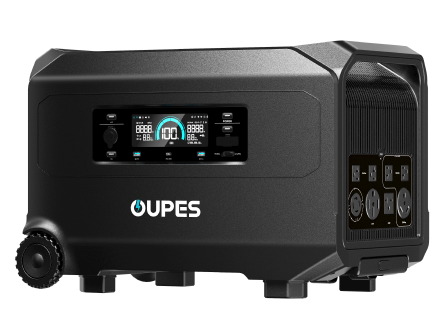



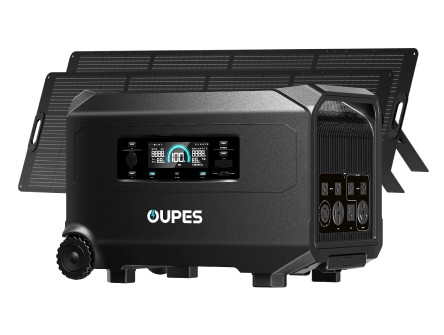

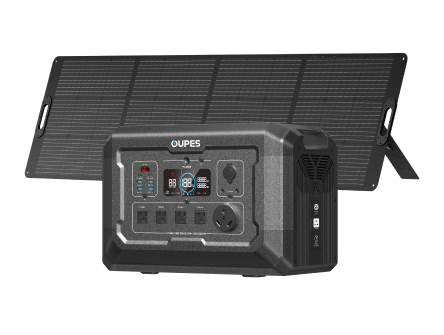

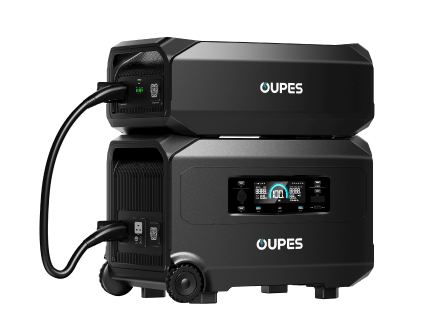
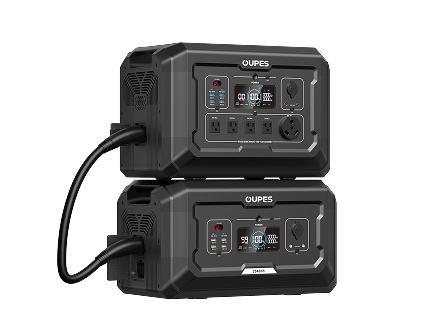
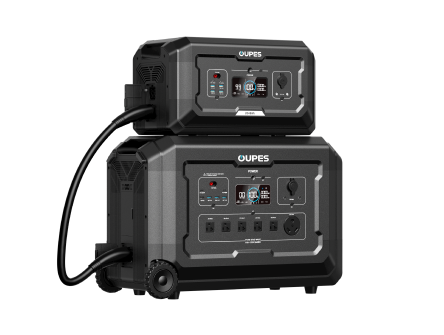
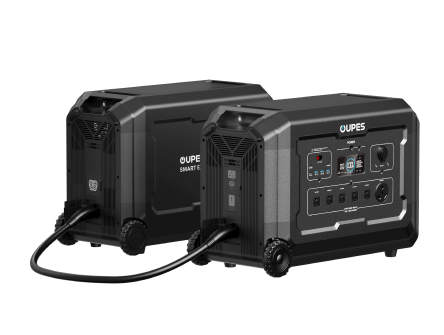




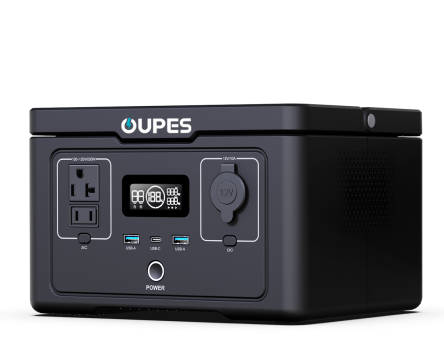


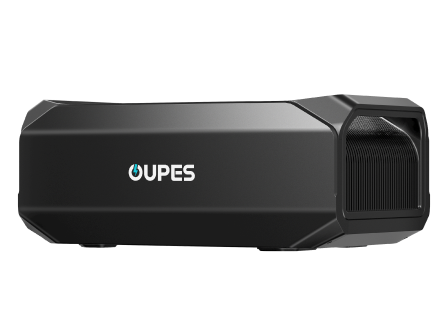
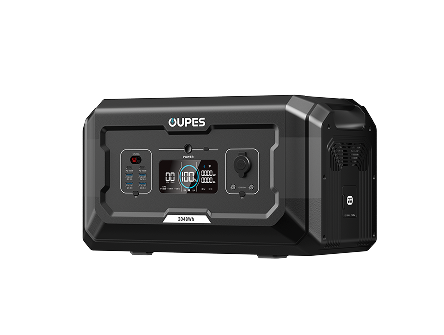
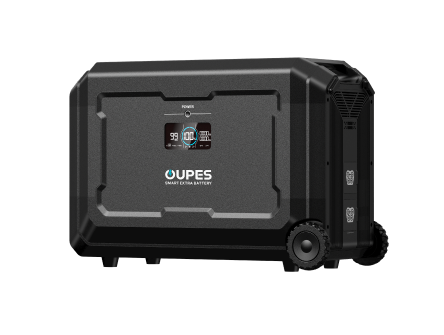
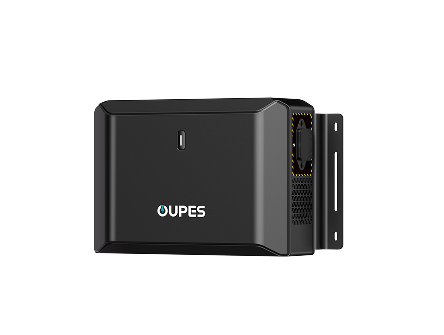
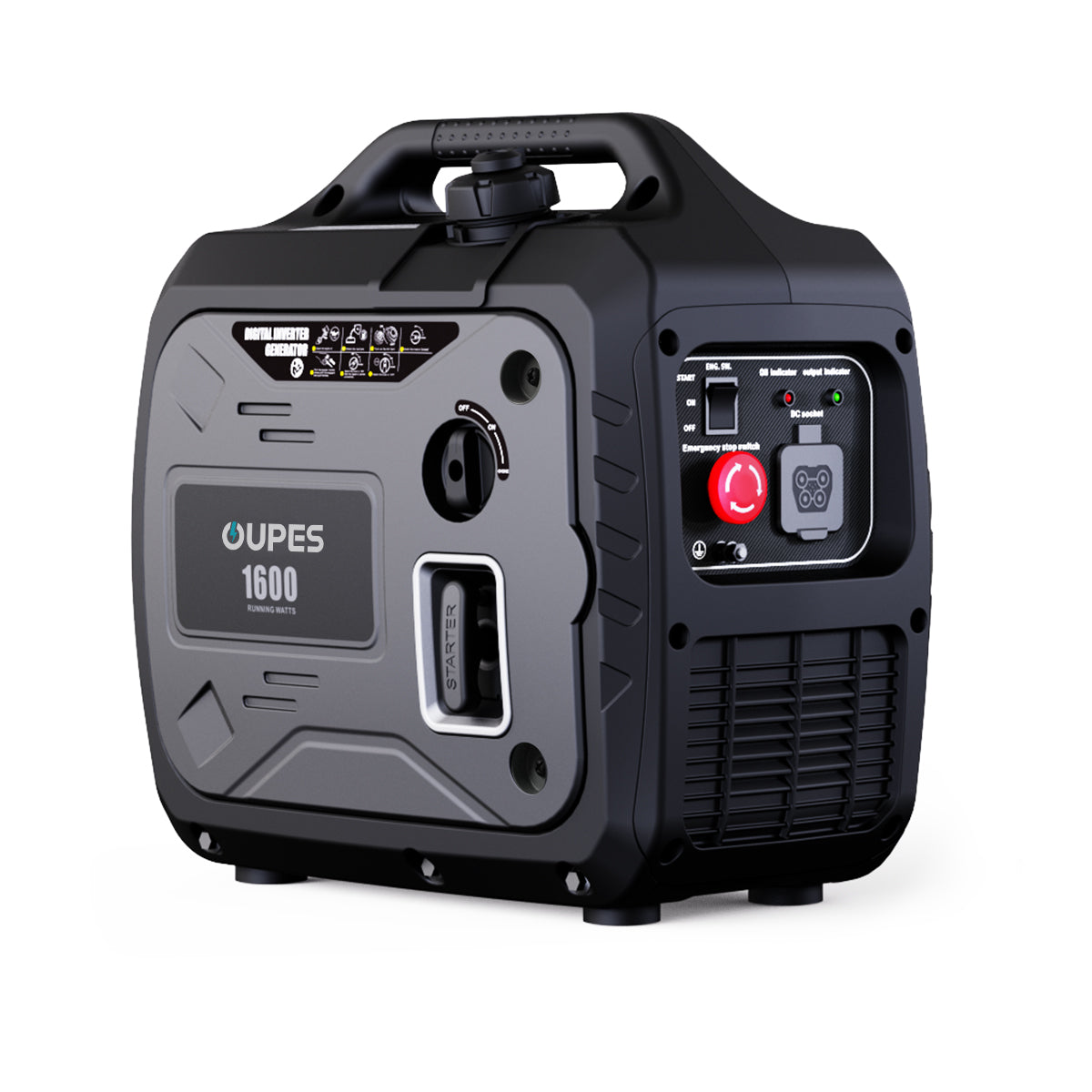

































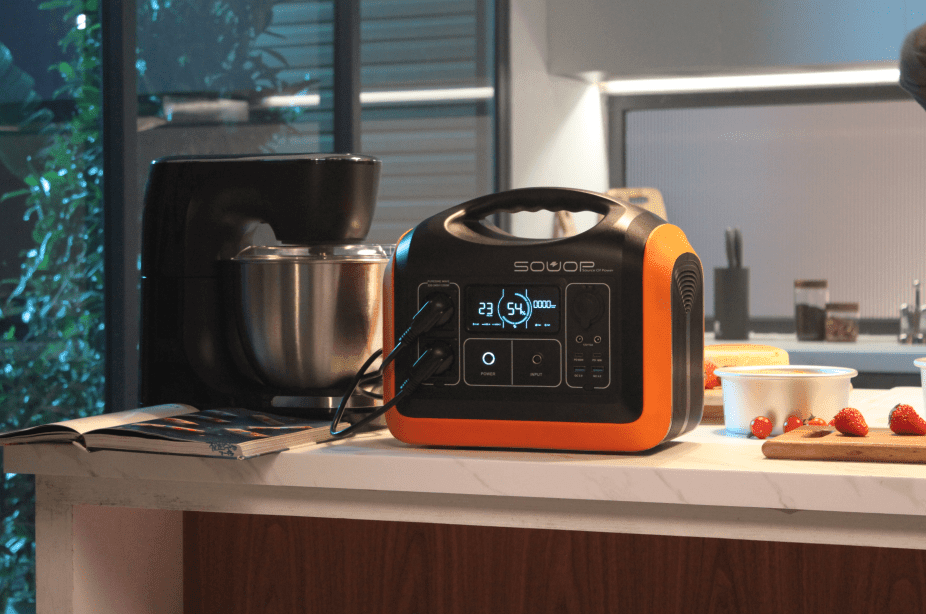
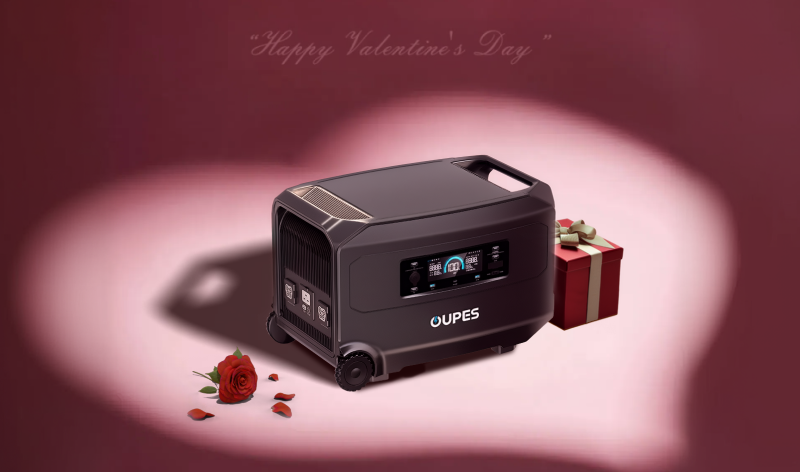
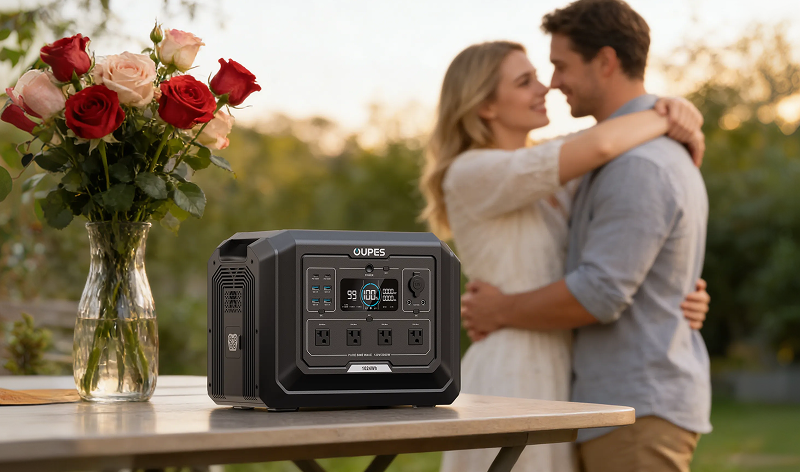
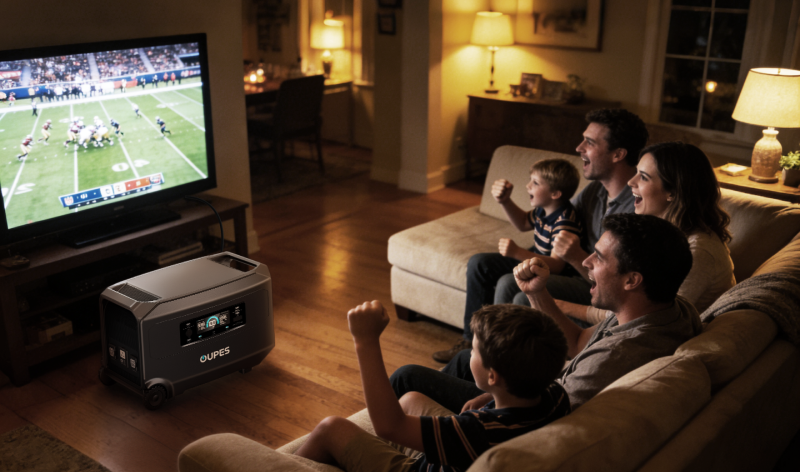
Leave a comment
This site is protected by hCaptcha and the hCaptcha Privacy Policy and Terms of Service apply.